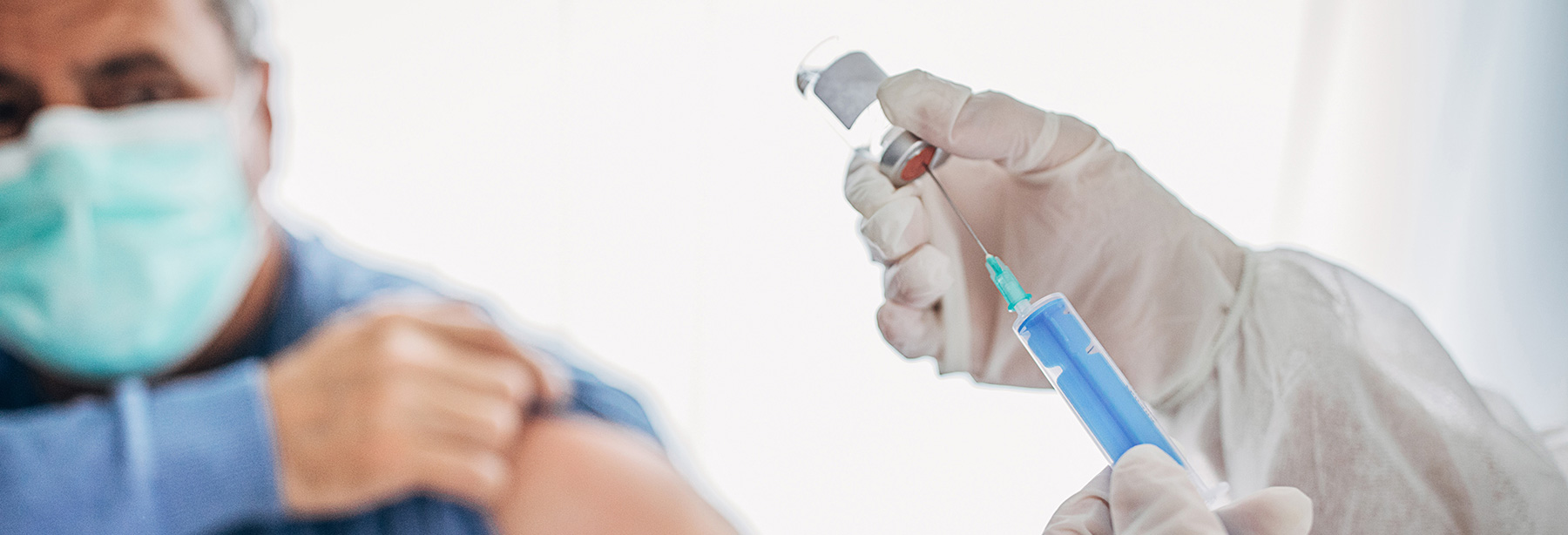Seniors and Vaccines: A Closer Look

The research is in. Vaccines may not be as effective in the elderly, but ironically, that makes them even more important to take.
Of all the things in our bodies that tend to decline with age, the most concerning is our immunity. This age-related decrease in immunity, known as immunosenescence, makes the elderly more susceptible to severe complications related to common illnesses such as pneumonia, shingles, or the flu. It’s also safe to say that it’s one reason why COVID-19 infections are deadlier among the elderly.
How aging affects immunity
Aging can impact the immune system in several ways, says Marcio R. Soares, M.D., chief of geriatric and palliative medicine at the University of Miami Health System. First, the cells in your body responsible for immunity, such as monocytes, neutrophils, lymphocytes, and others, naturally decline as you age. These lymphocytes, also known as B-cells, help your body produce antibodies to fight off infections. But older people don’t have as much ammunition for that fight as a young person does. What’s more, the elderly also have elevated pro-inflammatory proteins like IL-6 or TNF-a, which may lead to more severe infection symptoms.
Reduced immunity = more need for vaccine
Of course, all these variables make preventing the spread of infection by wearing masks, social distancing, and washing hands even more critical for seniors.
However, research shows that the same factors that make seniors more susceptible to illness also cause vaccines to be less effective. Naturally, many elderly patients are concerned that, even when a COVID-19 vaccine becomes available, it may not be effective at keeping them safe from the virus.
On the contrary, reduced immunity in the elderly makes it even more, not less, important that they get vaccines. “The fact that vaccinations can be less effective in the elderly should make more people want to have the vaccine, and also make sure that as many seniors have the vaccine as possible,” says Dr. Soares. “Not only that, but it should make a strong case for those of us who interact with the elderly to get the vaccine. This is extremely important.”
According to the American College of Physicians, widespread vaccination is critical to keeping seniors safe due to “herd immunity.” Even if vaccines aren’t as effective in seniors as they are in the rest of the population, having everyone get the vaccine keeps seniors safer. If you and everyone around you get the vaccine, everyone is less likely to get infected with COVID-19. In turn, the seniors you come into contact with will also be less likely to get infected. “When a vaccine becomes available, not only should you get it, but everyone in your inner circle should also get it,” says Dr. Soares. “This will further increase everyone’s protection.”
Of course, vaccines aren’t the only tool available to protect you from infection as you age.
According to the Institute on Aging, your overall lifestyle choices play an essential role in keeping you healthy and better able to fight off infections. These include:
- eating a healthy diet
- getting plenty of sleep
- staying active and hydrated
- maintaining good hygiene
- avoiding stress
“How your body deals with infections is related to not only age but more importantly, how you have aged,” says Dr. Soares. “How you care for yourself in regard to the level of activity, diet, and how controlled your chronic medical conditions are can have an impact as to how your body responds.”
Wyatt Myers is a contributing writer for UMiami Health News.
Tags: COVID-19, Dr. Marcio R. Soares, geriatrics, herd immunity, seniors
